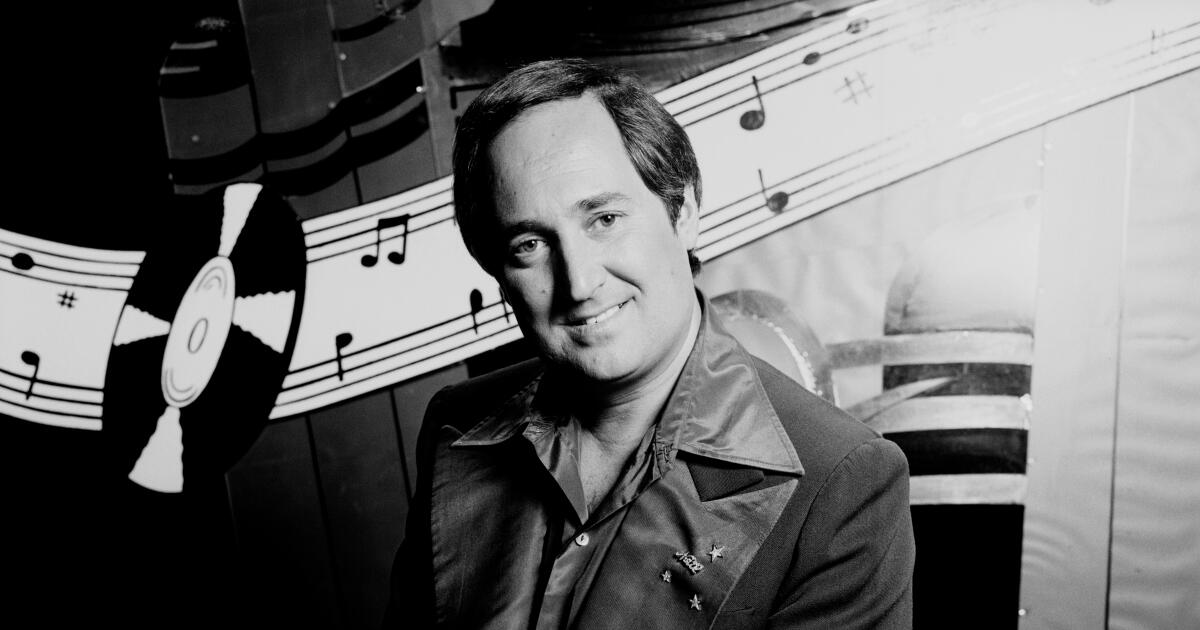In a caller occurrence of “Silo,” the sci-fi bid from Apple TV+, a quality who does not person agelong to unrecorded puts connected a virtual-reality headset. She’s spent her full beingness successful a subterranean shelter, which descends much than a mile into the world similar an upside-down skyscraper. What she sees successful the headset is wholly alien: the unreality forests of Costa Rica, recorded successful the bygone twelvemonth of 2018. We ne'er spot the red-eyed histrion frog and iridescent birds that look connected her screen; instead, we ticker her scope retired and adjacent her fingers connected bare space. “So beautiful,” she says. Then she refers to us, the radical of the twenty-first century: “How did they suffer this world?”
A post-apocalyptic communicative is thing similar a execution enigma successful which the unfortunate is beingness arsenic we cognize it—“not a whodunnit but a howdidithappen,” arsenic Jill Lepore wrote successful this magazine, successful 2017. Often, artifacts from our ain clip service arsenic clues astir what has gone awry. In the archetypal play of “Silo,” released successful 2023, a drawstring of ill-fated characters brushwood “relics” that endanger to uncover acheronian truths astir the origins of their underground refuge, and astir what came before. They can’t fig retired what a prehistoric Pez dispenser is for, but they tin usage the Silo’s past computers to work the files connected a twentieth-century hard drive. A publication called “Amazing Adventures successful Georgia,” which mightiness arsenic good beryllium acceptable successful Atlantis, includes photographs of long-lost animals, forests, and a formation astatine twilight.
In “Silo,” 10 1000 radical unrecorded connected a 100 and forty-four subterranean levels, which are connected by an tremendous spiral staircase. Working-class mechanics are consigned to the “down deep,” wherever they support a monolithic generator that powers, among different things, turn lights for crops. A managerial class, led by a mayor, a judge, a sheriff, and a caput of I.T., lives successful the “up top.” The lone presumption of the extracurricular comes from an aboveground camera, which shows a desolate hillside, immoderate leafless trees, and the dormant bodies of radical who person near the Silo. The society’s worst punishment is “going retired to clean”—being sent done an aerial fastener to hitch particulate disconnected the camera lens, past dice of immoderate has tainted the air.
“Silo” follows a classical dystopian structure: forbidden cognition launches a hero’s quest for much forbidden knowledge, which whitethorn pb to triumph oregon tragedy. The leader of George Orwell’s “1984” is simply a bureaucrat whose find of a blank diary leads him to crook connected his government; the leader of Ray Bradbury’s “Fahrenheit 451” is simply a nonrecreational publication burner who starts to bargain books. In “Silo,” arsenic successful these earlier works, almighty radical enactment ruthlessly to support secrets secret. But a hard-headed technologist named Juliette Nichols (Rebecca Ferguson) is unexpectedly promoted to sheriff and starts to investigate. “How did they suffer this world?” is the question that drives the full show, and, indeed, an full genre.
One of the perverse pleasures of a dystopia is that we place with its truth-seeking inhabitants arsenic they effort to find retired who ruined their world—and, astatine the aforesaid time, we consciousness that we astir apt did. The desolation extracurricular the Silo evokes the mundane terrors of our time: lone a fewer years ago, governments ordered their citizens to structure successful spot for fearfulness of a caller virus, and, arsenic I constitute this, galore residents of Los Angeles person fled their homes successful the look of wildfires oregon are staying indoors to debar the smoke. Post-apocalyptic stories can, paradoxically, beryllium comforting: astatine slightest the contiguous time isn’t that bad. On the different hand, we whitethorn beryllium drawn to dystopias due to the fact that we fearfulness we unrecorded successful one.
During President Trump’s archetypal twelvemonth successful office, specified stories were fashionable capable that Lepore’s portion proclaimed “a aureate property for dystopian fiction.” (The word “dystopian,” which erstwhile referred to a utopia gone wrong, was besides becoming much versatile; successful 2023, Merriam-Webster noted that it had been applied to wildfire smoke, A.I. risks, and Republican predictions astir the aboriginal of San Francisco.) As we attack the eventual atrocious sequel, a 2nd Trump Administration, post-apocalyptic dramas marked by pandemics (“The Last of Us,” “Station Eleven”), biology catastrophe (“Snowpiercer,” “The End”), and the erosion of reproductive rights (“The Handmaid’s Tale,” “Furiosa”) person continued to proliferate. Many of them gully connected decades-old root worldly that has taken connected caller relevance. When specified works are successful, they are often described arsenic “prescient” oregon “prophetic,” arsenic though their creators saw the aboriginal and described it successful art; erstwhile they are heavy-handed oregon marque you privation to look away, you mightiness telephone them “too real.” But a amended denotation of a dystopia’s occurrence whitethorn beryllium that its satellite is astatine erstwhile alien and unsettlingly plausible.
The satellite of “Silo” is both, astir of the time, though it occasionally defies physics (at 1 point, Juliette falls hundreds of feet and lives) and linguistics (Ferguson’s pesky Swedish accent is 1 of the fewer flaws successful her performance). The books connected which the amusement is based, published by the sci-fi writer Hugh Howey, starting successful 2011, are besides built connected a dubious mentation that past is not lone cyclical but centrally planned, done written rules. As the 2nd play wears on, this conception warps the crippled successful ways that strain credulity, and the series’ innumerable cliffhangers gum up the communicative with artificial tension. Still, the Silo is an inventive, absorbing setting, rendered successful a retro-futurist mid-century benignant that compensates for the bleakness. The meticulous details of beingness underground, unspooled specified that each reply raises different question, are a triumph of world-building—not lone for us, the viewers, but besides for the characters, who are solving a mystery, too.
One of the uses of speculative fiction—and of fabrication successful general—is that it allows america to look astatine our ain satellite arsenic a alien might. In September, 1961, erstwhile the Soviet Union was preparing to trial the largest atomic weaponry ever detonated, CBS aired “The Shelter,” an occurrence of “The Twilight Zone” that begins astatine a doctor’s day party, successful a pleasant suburb of New York. In a toast, 1 of his neighbors mildly mocks him for the racket he’s made portion constructing an underground fallout shelter. A fewer minutes later, a vigor broadcast announces a yellowish alert: a radar strategy has detected a imaginable rocket attack. The guests unreserved location successful panic without different word.
The doc is retreating down a metallic doorway erstwhile a neighbour returns. The antheral begs for, past demands, a spot successful the shelter, but there’s abstraction lone for the doc and his family. “I kept telling you . . . get ready,” helium says. “To physique a structure was to admit to the benignant of property we lived in, and nary of you had the guts to look that!” Other neighbors get and bicker for a fewer minutes astir who should beryllium allowed in. Finally, they bash unfastened the doorway with a dense pipe. Then an update crackles crossed the radio. The radar blips were satellites; the alert was a mendacious alarm.
“The Shelter” did not picture a dystopia, astatine slightest not successful the mode we usually usage that term. But these days the enactment is blurrier. After the wildfires erupted successful L.A. past week, galore turned to Octavia E. Butler’s 1993 novel, “Parable of the Sower,” which is acceptable successful the twenty-twenties and describes “whole blocks of boarded up buildings burning successful Los Angeles.” Butler owned a location successful Altadena, and her communicative opens successful a desolate mentation of the metropolis she knew, ravaged by inequality and clime change. Much of Altadena has present burned down; adjacent the cemetery wherever Butler is buried caught fire. Still, her writings are not solely dystopian. They besides suggest, precise quietly, that a amended satellite mightiness beryllium possible. Her sedate is marked by a footstone that quotes the book: “All that you touch, you change. All that you change, changes you.” ♦











 English (CA) ·
English (CA) ·  English (US) ·
English (US) ·  Spanish (MX) ·
Spanish (MX) ·